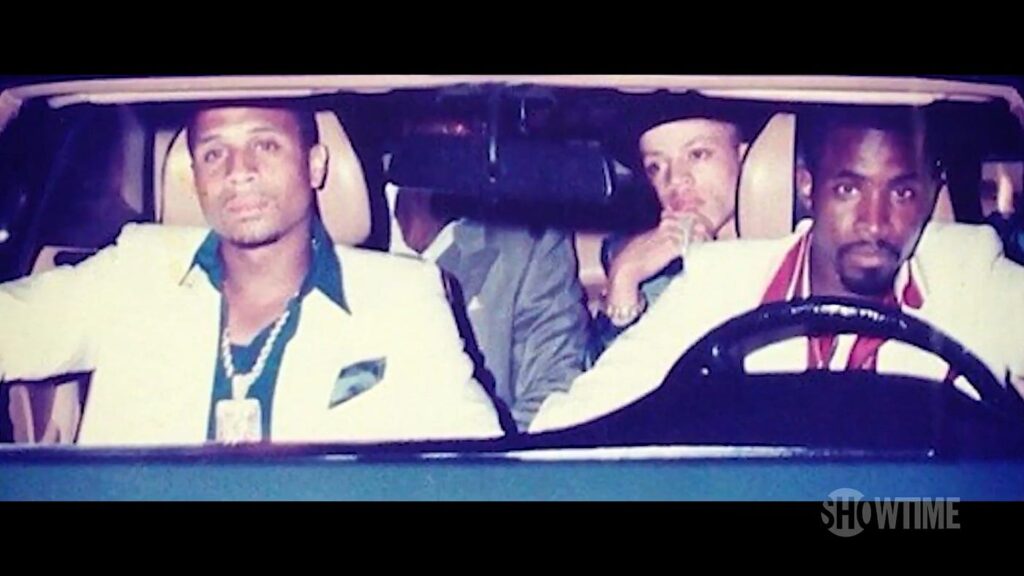Queens Never Forgets
It started with a film.
A claim.
And the kind of name-drop that shakes concrete.
Kenneth “Supreme” McGriff — once the architect of the Supreme Team empire that ran Baisley Park like a kingdom — called out his former associate James “Bimmy” Antney as a confidential informant. Not a recent one. A forty-year C.I.
The accusation hit like a car crash in slow motion — screech, spin, silence, disbelief. For Queens, for hip-hop heads who grew up on the mythology of the Supreme Team, this wasn’t just gossip. This was a crack in the foundation of legend.
Supreme Speaks
McGriff dropped the bomb inside The Supreme Truth, a documentary framed as his chance to tell his side from behind the wall. But when he said Bimmy’s name, everything else blurred.
“This is a man I thought was my brother,” McGriff says, before the words turn heavier. “But he’s been working with them people for decades.”
No paperwork shown. No details. Just declaration. And that’s all it takes.
In Queens, an allegation like that doesn’t travel — it teleports. Within hours, the clip was everywhere: YouTube channels, Reddit threads, group chats filled with side-eyes and screenshots.
Then Prince Miller — McGriff’s nephew — doubled down, promising “receipts” on an upcoming podcast. He said, “When we speak, we speak truth.” Which, in this new media economy, also means: we speak content.
Bimmy Fights Back
James “Bimmy” Antney wasn’t quiet for long.
He pulled up on M.Reck TV, face steady, voice sharp. “Lies,” he said. “Straight lies. Ain’t no man gon’ say that about me and not get checked.”
Then he did what few accused men ever do in these moments — he brought receipts of his own life.
Back in ’92, Antney was arrested in a direct sale to an undercover agent. One kilo. One sting. He took a plea — three to life. “How the fuck I’m a snitch,” he asked, “if they set me up? They gon’ set up one of they own?”
It’s the kind of logic that hits street ears different.
Bimmy told the story with memory sharp as glass — the bail set at two million, Whitney and Bobby allegedly putting up the money. The codefendant who went to trial and got fifteen to life. His own plea deal that landed him home and hustling for a different bag.
The Exit From the Game
When Bimmy came home, he didn’t go back to the corner. He went to Def Jam.
Russell Simmons gave him an ultimatum: “If I hear you around them dudes, you fired.” Bimmy listened. The streets became a memory. The industry became the grind. He worked A&R. Helped shape LL Cool J’s G.O.A.T. album. Built a résumé that put him on screen decades later in FX’s Hip Hop Uncovered.
And that’s part of what makes this new beef sting.
“I ain’t been in the game in 35 years,” he said. “How I’m tellin’ on who? I don’t even know nobody to tell on.”
That line — raw, simple, final — feels like a man trying to shut the door on ghosts. But the internet doesn’t do closure. It does loops.
Old Wounds, New Screens
Behind all the drama is a deeper dynamic: who gets to tell the story.
McGriff built the Supreme Team mythology. He’s the reason “Supreme” means more than royalty in Queens. But while he’s serving life — convicted in 2007 for murder-for-hire and federal drug charges — Bimmy’s face became the one the public sees. On camera. In documentaries. Talking legacy.
When Hip Hop Uncovered dropped, Bimmy looked like the last man standing from a forgotten era. Articulated, clean, evolved — the “street guy who made it out.” For McGriff, some say, that image stung.
Gully TV broke it down bluntly: “Never outshine the master.” In their analysis, McGriff’s frustration is less about snitching and more about visibility — about watching his name reinterpreted by someone else on national television.
And maybe about envy.
Money, Loyalty, and Time
Somewhere under all this is money — or the lack of it.
Bimmy said there was an old deal: he’d look after Prince, McGriff’s nephew, while another associate handled the commissary. “I did my job,” he said. “But when I started working legit, that street money stopped. You can’t give what you don’t have.”
Decades later, it’s hard to know whether the tension is about betrayal or neglect — whether it’s paperwork or pride.
But for a man like McGriff, sitting in a cell watching the world evolve without him, every success story from the outside can sound like silence.
Paperwork Culture and the New Street Code
The term snitch still cuts like it did in the ’80s — maybe sharper now, because social media made it shareable. The old code said an accusation like that could only end one way: proof or repercussion. Now it ends in content. Lives and legends are litigated on YouTube.
“Calling a man a rat or a gay — that’s how you kill a name these days,” one commentator said. It’s digital assassination dressed as street justice.
For Antney, that’s the insult: not just being accused, but being accused for the algorithm. “He just tryna get that doc some views,” Bimmy said. “Ain’t nobody watched that shit in two years till he said my name.”
It’s hard to argue with the timing.
Family, Fame, and Fallout
This story stretches across generations — from Def Jam boardrooms to Waka Flocka’s stage, from Deb Antney’s artist management empire to McGriff’s locked-down empire of memory.
These are bloodlines that shaped hip-hop’s architecture. And now they’re tangled in a public feud that feels part Greek tragedy, part Queens rumor mill.
Antney says he won’t visit or confront Supreme. “Any man that make an accusation like that, and know it ain’t true — we got nothing to talk about.”
That’s the quietest kind of ending there is.
The Broader Picture
What this really exposes isn’t just the fragility of street credibility — it’s how legacy itself gets remixed.
Documentaries, podcasts, YouTube channels — they’re the new blocks. Reputation now lives on camera. The storytellers get the power, not the shot callers.
The Supreme Team built its name on control — control of the corners, the narrative, the fear. But in 2025, control belongs to whoever presses upload first.
And maybe that’s what hurts most.
Final Word
Whether you believe McGriff’s claim or Bimmy’s rebuttal almost doesn’t matter. The real story lives in what this says about fame after the fall — when street legends become streaming content, and “truth” becomes another product to promote.
For Queens, it’s déjà vu. The players change, the code evolves, but the same question echoes through every barbershop and backroom:
When the paperwork drops, who really wins?
Sources
FX Networks – Hip Hop Uncovered: James “Bimmy” Antney Profile
OnSmash – Bimmy Responds to Supreme McGriff Calling Him a Confidential Informant
YouTube – Bimmy Responds To Prince Miller & Supreme McGriff (M.Reck TV)
YouTube – Bimmy Says He Will Drop Paperwork on the Supreme Team (I Knew This Day Was Coming)
YouTube – Bimmy on Meeting Kenneth “Supreme” McGriff, Joining Supreme Team



